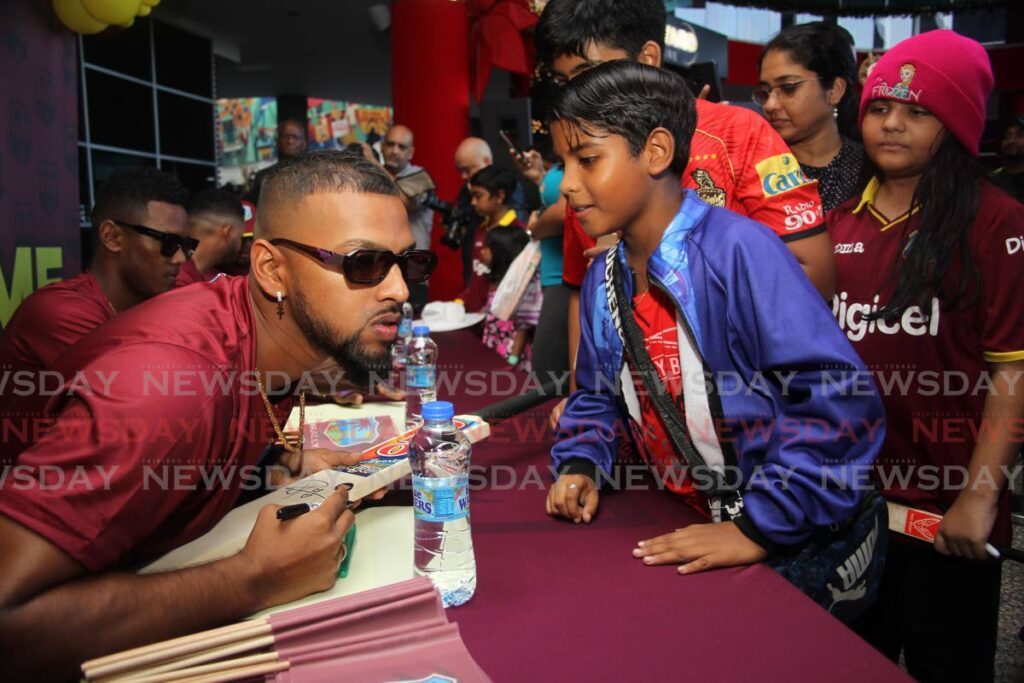World Cup legacy: A spark to revive West Indian cricket?

Cricket has become a central pillar in the English-speaking Caribbean with a rich legacy here.
From Test glory under Sir Frank Worrell, domination under Sir Clive Lloyd, batting records by Brian Lara and later T20 success, cricket has become a source of pride for West Indians.
The region, alongside tournament debutants and co-hosts USA, adds to its decorated history in the sport when they jointly present the International Cricket Council (ICC) T20 World Cup’s ninth edition, from June 1-29.
The biennial tourney brings a wealth of opportunity to the hosts who have prepared nine venues to welcome the world.
In 2010 the West Indies hosted the showpiece event for the first time. This year’s hosting makes them the only nation to ever host a T20 World Cup twice, since the tournament’s inception in 2007.
Back then, the maroon utilised just three venues: Beausejour Stadium in St Lucia, Kensington Oval in Barbados and Providence Stadium in Guyana.
This time, these three venues will be used once more in addition to North Sound, Antigua; Kingstown, St Vincent and the Grenadines; Tarouba, Trinidad; Dallas, Texas; Lauderhill, Florida and Eisenhower Park, New York, USA.
Each host nation is gearing up for a welcome economic boost by way of sport tourism.
An increase in visitor traffic, jobs, business and opportunities for all-round development bring added value to the Caribbean — including surrounding islands who aren’t hosts — and the US.
In January, Cricket West Indies (CWI) president Dr Kishore Shallow estimated the tournament to yield over US$300 million “in direct economic impact for the Caribbean” and said that the “impact on jobs, revenue streams, and the overall quality of life for our citizens will be substantial.”
Chairman of the T20 World Cup’s Trinidad and Tobago Local Organising Committee (LOC) Douglas Camacho said the competition brings economic stimulus.
“People are coming to spend money, and as a result, the countries will gain foreign exchange. One can quantify that based on arrivals (regional and international visitors), and then there’s a methodology that they use to determine what the likely economic impact of that is,” Camacho told Newsday.

He anticipates that each territory will have different capabilities and execution styles, but urged them to make this most of their resources and other assets, to ensure they maximise on the thousands of travelling fans.
The gentleman’s game boasts in excess of 2.5 billion fans and viewership for the 2024 edition is expected to be astounding, possibly record-breaking.
“From a global perspective, and because of the vast television and digital viewing audience, it’s an opportunity where the host countries, and others, will be highlighted and marketed on a worldwide platform. This will put various territories on the map,” Camacho added.
Even aspiring cricketers in the Caribbean and US will get a first-hand chance to see their favourite local or international cricketer/s in action, live, maybe, for their first and possibly only time.
Such an experience augurs well for those budding, impressionable youngsters, who seek added motivation to further their careers.
He continued, “From a cricketing perspective, the World Cup brings a hype and awareness and hopefully a revitalisation of interest in cricket. Cricket in the Caribbean, relative to where it was, was dying.
“T20 has brought some life to it but not at the level of where it used to be. You don’t see people playing cricket on the beach or road any more. I’m hoping it’s a catalyst from a cricketing point.”
Camacho shared similar sentiments with the Barbados government officials who identified the resurgence of cricket in that country as the “number one legacy benefit.”
Barbados organising committee ambassador Noel Lynch, in April, said that there is a generation who may have no idea of Barbados’s and former West Indies’s legendary all-rounder Sir Garfield Sobers’s impact on cricket, which he described as “one of the greatest travesties of our social and economic development.” TT leg-spinner Samuel Badree, a two-time T20 World Cup winner with West Indies, acknowledged the economic benefits of co-hosting but stressed on the immense impact it could have on the current and next generation of cricketers here.
The former ICC top-ranked T20 spinner was part of the maroon’s title-winning teams in 2012 and 2016. He is also an ambassador for the tournament and will do live commentary throughout the month-long contest.
Badree said, “Young persons will speak about this event for years to come as fan engagement promises to be at an all-time high. Stadia have been refurbished and the quality of fan experience should be marvellous.
“The cricket itself also promises much and in combination with everything else, this World Cup experience would be ‘out of this world’ as the slogan promises.”
For USA, cricket has been slowly gaining popularity but has yet to challenge the domination of baseball, American football, basketball, soccer and hockey.
The T20 World Cup may be the spark needed to bolster the sport further, and a successful hosting of matches in the three cities set the stage for more big international events in the future.
It also opens up new opportunities for young athletes there, and gives them more sports to try out and help grow the talent pool.
Camacho believes the vast American-based international cricket diaspora have played an integral role.
“The cricketing diaspora who reside there, whether it’s from the West Indies, Australia, New Zealand, Pakistan, Bangladesh and India in particular, that now live in the US and Canada, have been playing cricket for the longest while.
“What they lack is cricket-specific facilities. These pitches they’re putting in in Florida and New York are temporary. The reality is that it’s a sport that expats and first-generation Americans from expats, from cricket playing nations, are picking up. It’s good to see them progressing.”
It is evident the benefits outweigh any possible drawbacks of the T20 World Cup’s nine edition.
And in conclusion, one of the most anticipated legacies yet to be set in stone is a host nation winning the tournament. If West Indies can lift the crown, they will become the first host nation to do so, and the first nation to win the coveted title three times.

Comments
"World Cup legacy: A spark to revive West Indian cricket?"